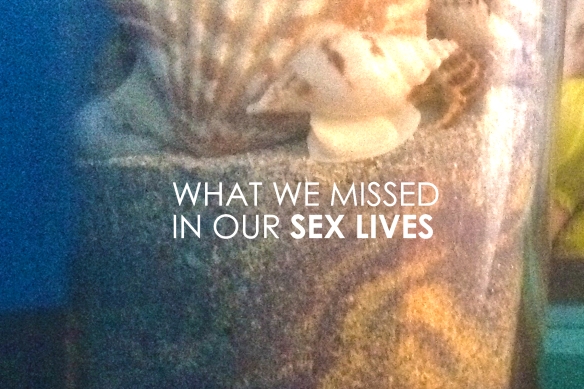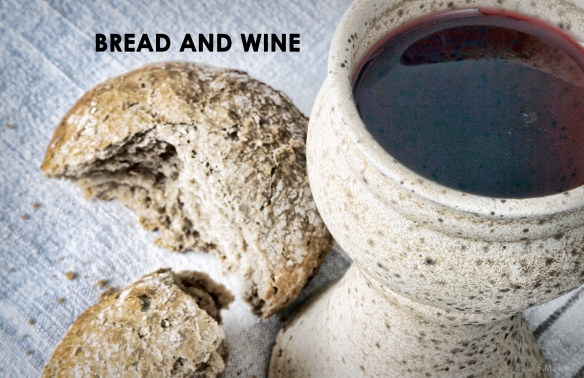 I recently began a teaching series on sex at LifeCity Church by quoting an otherwise very unlikely verse – Deuteronomy 6:4 “Hear, O Israel: the Lord our God is one!”
I recently began a teaching series on sex at LifeCity Church by quoting an otherwise very unlikely verse – Deuteronomy 6:4 “Hear, O Israel: the Lord our God is one!”
What in the world does that have to do with sex?! Glad you asked.
In Genesis 2:24-25, “…a man shall leave his father and mother and be joined to his wife; and they shall become one flesh. And the man and his wife were both naked and were not ashamed.”
One word. A Hebrew word – echad. It means “to be united in every way possible.” It’s the word the Bible uses in the Old Testament to describe the “oneness” of God. A word that supports Jesus’ teaching of the Trinity in the New Testament: that God is a united, “one” God. There is a Hebrew word for absolute one – yachid. Interestingly, yachid is never used to describe God, only echad. This makes perfect sense when Jesus came along and said things like, “I and my Father are one.” (John 10:30) and, “If you’ve seen me, you’ve seen the Father.” (John 14:9).
Again, what does any of that have to do with sex…
The same word describing the perfect, absolute union of the persons of God (Father, Son, and Holy Spirit) is the same word that God uses to describe the nature of sexual union between a husband and wife… echad – to be united in every way possible.
In other words, sex isn’t “just sex.” It’s far more than mere physical pleasure between two consenting adults. It’s oneness in every way possible. It’s physical, emotional, relational, and even spiritual.
I have this interesting decorative piece in my office (pictured above) from mine and Tiffany’s wedding day. It’s a mixture of sands and shells in a glass jar. We made this in place of the more traditional “unity candle”. On our wedding day, my wife poured one color of sand into this jar over the seashells, while I simultaneously added sand of a different color. Though I didn’t understand hardly any Greek or Hebrew at the time, I realize now that this was a perfect illustration of echad.
The sand is completely united. You could never separate the two again, and attempting to do so would be extremely messy, time-consuming, and more than likely useless. Though you can still see ribbons of both sands lacing their way through the glass, they might as well be shaken together – it wouldn’t be any more or less difficult to separate the sand either way.
I wondered this past week what would have happened if we attempted this demonstration of our lives coming together “in every way possible”, but without the benefit of the glass jar…
For one, we would have a huge mess. Secondly, it would be almost impossible to keep the mixed sands long-term. We would lose much of the sand in the process. We could vacuum it all up, and then try to put it in a jar. Of course that would doubtlessly leave bits of other stuff added to the sand – lint, dirt, and who-knows-what-else.
I’m glad we didn’t do it that way! And though the sand has been kept in the same delicate glass jar, we’ve seen to it’s safety our entire marriage. That sand has withstood 4 children, 9 moves, and nearly 11 years of marriage and ministry.
The worst thing imaginable for echad is that it would be separated. Because it is so definitively intimate, tearing echad apart, like the sand, is messy, and even painful. It was never meant to be undone.
God hates divorce… He hates what it does to families and to the two lives that were joined together, only to be torn apart. As we read the Bible it’s equally clear that God despises the frivolous means by which our culture treats sexuality – how we so simply create and tear echad apart. Hopping from one partner to the next the moment that person aggravates us, or a more attractive offer comes along.
According to Genesis 1:28, God blessed the marriage relationship. Like the glass jar, marriage is a safe place where echad can be freely expressed, enjoyed, and appreciated in all of it’s intimate implications. Outside of that jar, you lose it’s beauty and end up with a mess.
God doesn’t tell us to wait until marriage to express our sexuality because He’s trying to limit our pleasure, but because He’s trying to prevent our pain. It’s better to be a whole individual (yachid) than be echad and have it severed. You always lose part of yourself when echad is torn. Like the sand, it’s unavoidable.
A few realizations to consider based on this…
- Sexual purity is not something to be mocked, but admired.
- Sex is a gift from God. His view on it isn’t less than the world’s, but much greater.
- If you’re single and sleeping around, you’re hurting people other than just yourself.
- If you’re single but living with your “other half”, make echad safe in marriage.
- If you’re married, you’ve got to protect echad. Like the jar, it’s delicate and precious.
- If you have regrets, humbly bring them to the cross of Jesus and find healing.
Jesus did the most brutal thing imaginable when He died on that cross. He didn’t just get tortured and killed – He sacrificed echad with the Father (Matthew 27:46) to offer salvation to humanity. When you understand the true significance of that, you’ll never see Jesus’ death – or your sexuality – as something to be treated trivially again.
Blessings,
Pastor John
 This past Sunday, I preached a message as part of a new series called, Made New. You can check out the message below. One of the main thoughts I shared was this:
This past Sunday, I preached a message as part of a new series called, Made New. You can check out the message below. One of the main thoughts I shared was this:


